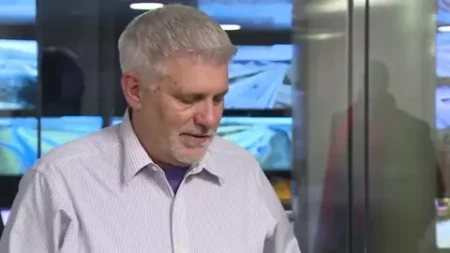A county clerk in New York has once again rejected a request to enforce a civil judgment from Texas against a local doctor who prescribed abortion pills to a woman living in the Dallas area. This legal clash highlights the growing divide between states over reproductive rights.
The case involves Dr. Margaret Carpenter, a doctor based in Ulster County, New York. She is accused of prescribing abortion medication via telemedicine to a woman in Texas, where strict abortion laws are in place. Texas courts had ordered Carpenter to pay more than $100,000 in damages. Now, Texas officials want New York to accept and enforce that ruling.
But New York has a law that protects doctors like Carpenter. The state is one of eight that have passed what are known as “shield laws.” These laws prevent local authorities from cooperating with other states that try to punish residents or doctors for actions that are legal under New York law.
In March, Acting Ulster County Clerk Taylor Bruck refused to file the Texas judgment. Last week, the Texas attorney general’s office submitted a second request, claiming that Bruck has a legal duty under New York civil law to comply.
Bruck stood firm. In a letter to Texas officials, she wrote, “While I’m not entirely sure how things work in Texas, here in New York, a rejection means the matter is closed.”
Texas Attorney General Ken Paxton, a Republican, is pushing for the judgment to be enforced. He argues that New York is violating the U.S. Constitution’s “full faith and credit” clause, which requires states to respect the legal decisions made in other states.
Legal experts say this dispute could become a major test of how far shield laws can go. Carpenter is also facing another legal battle. Officials in Louisiana have charged her with prescribing abortion pills to a pregnant minor. Earlier this year, Louisiana asked New York to extradite her.
But Democratic New York Governor Kathy Hochul rejected that request. She said that under the state’s shield law, New York will not send Carpenter to face charges in another state for actions that are legal in New York.
In a new response to Texas, Governor Hochul strongly defended her state’s stance. “Our response to their baseless claim is clear: no way in hell. New York won’t be bullied,” she said. “And I’ll never back down from this fight.”
The ongoing battle shows how abortion access in the U.S. now depends more than ever on where a person lives. Since the U.S. Supreme Court ended nationwide abortion rights in 2022, many states have either banned or severely limited abortion, while others have moved to protect access.
Supporters of the Texas ruling argue that shield laws could create legal chaos. They say states must honor each other’s court decisions, even when laws differ. On the other hand, defenders of shield laws argue that no state should be allowed to control what happens beyond its borders.
For now, Dr. Carpenter remains free and continues her work in New York. But with more legal actions expected, both sides are preparing for a long battle. The case may eventually reach higher courts, possibly even the U.S. Supreme Court.
As the fight continues, doctors, patients, and lawmakers across the country are watching closely. The outcome could shape the future of telemedicine, reproductive rights, and the limits of state power.







